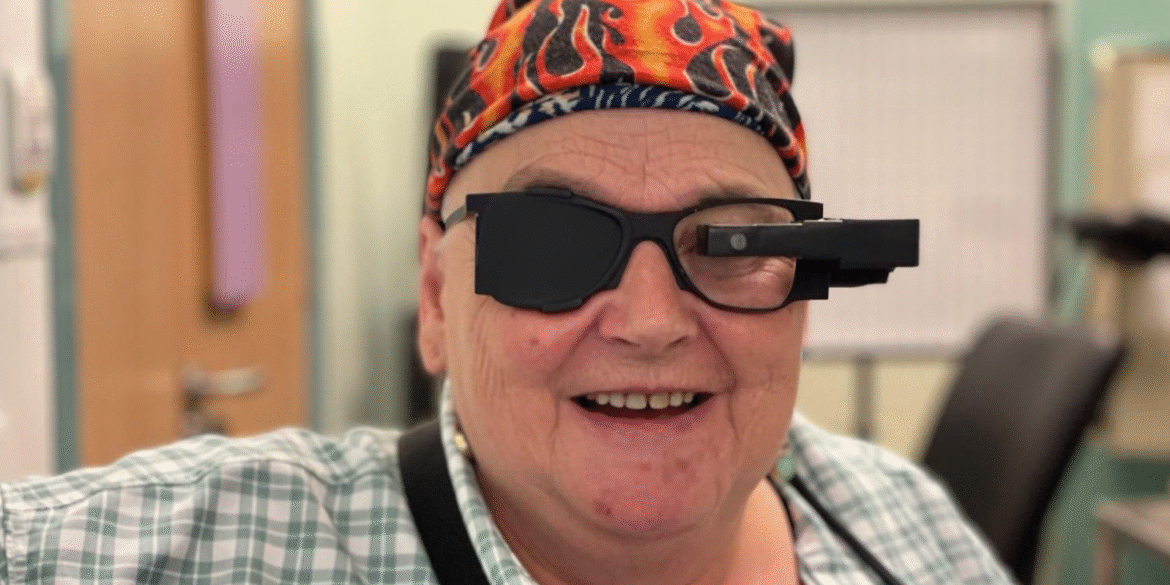A major medical breakthrough has given a group of blind patients the ability to read again after receiving a cutting-edge eye implant during an international clinical trial in London. Surgeons at Moorfields Eye Hospital described the results as “astounding,” marking a promising step forward for individuals living with advanced forms of sight loss.
The technology is targeted at patients suffering from geographic atrophy, an advanced and untreatable form of dry age-related macular degeneration (AMD). This degenerative condition affects more than 250,000 people in the United Kingdom and nearly five million people worldwide, mostly within older age groups.
In geographic atrophy, cells in a small but critical area of the retina die over time, leading to a progressive loss of central vision. Patients often retain some peripheral sight but lose clarity, color perception, and the ability to recognize faces or read text.
The new procedure involves surgically inserting a tiny photovoltaic microchip measuring just two millimeters square — roughly as thin as a human hair — under the retina. Once implanted, patients wear special glasses equipped with a video camera that captures images in front of them.
The camera transmits these images via an infrared signal to the implant, which then relays them to a portable processor. After enhancement and clarification, the data is converted into visual information sent to the optic nerve and on to the brain, allowing patients to reestablish some degree of central vision.
Patients must undergo several months of training to interpret the new signals and relearn how to process the restored visual input. In many cases, this allows them to identify letters and read short text again.
According to the study published in the New England Journal of Medicine, 38 patients from five European countries took part in trials for the Prima implant, developed by U.S.-based biotech firm Science Corporation. Of the 32 participants who successfully received the implant, 27 regained enough central vision to read again — an improvement equivalent to five lines on a standard sight test.
While the technology cannot benefit those who are born blind — because it relies on an intact optic nerve — researchers say the results offer powerful hope for millions of elderly patients facing irreversible vision loss.
Experts believe the implant could one day become a standard treatment for advanced macular degeneration, offering independence and improved quality of life to people who were once believed to be permanently blind.

